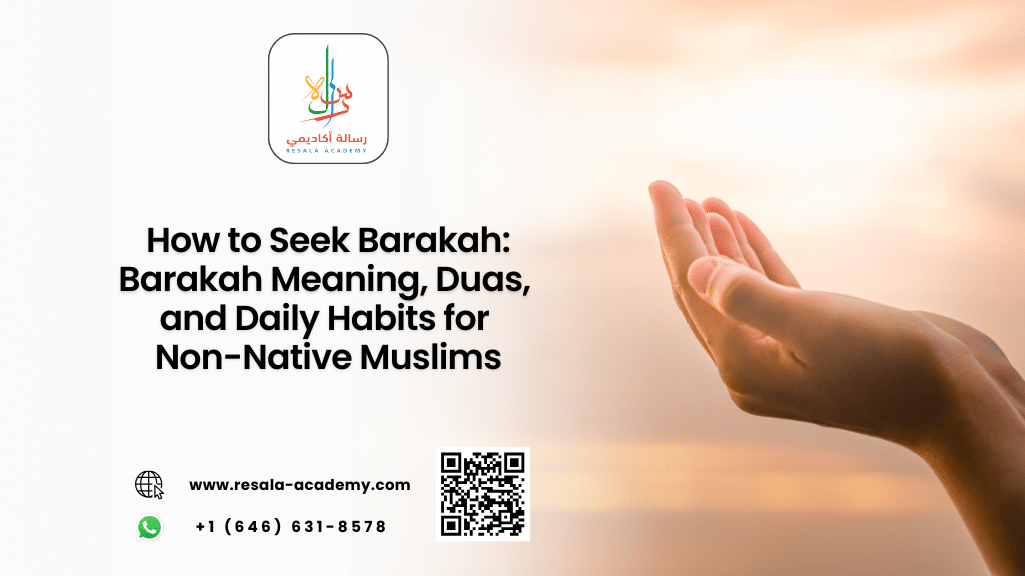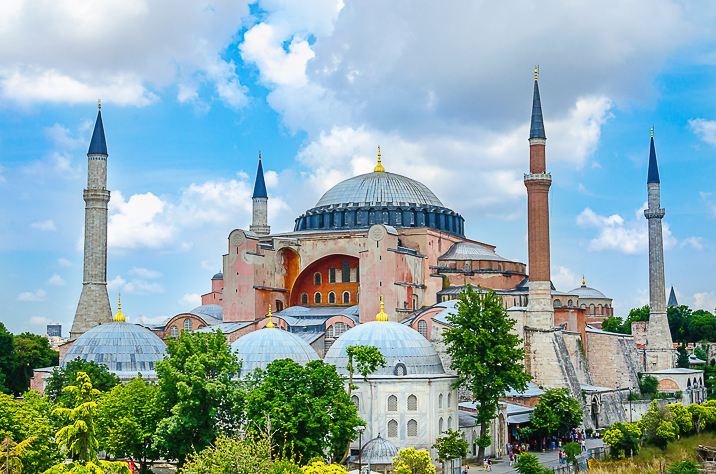Table of Contents
The Powerful Reward of Reciting the Dua After the Azan: A Spiritual Guide for Non-Native Speakers
The Adhan (Azan) — the melodious call to prayer — echoes through the hearts of Muslims five times a day, reminding them of their connection to Allah. But what many may not realize is that the moment after the Azan holds a powerful opportunity for spiritual elevation through a specific supplication: the dua after the Azan.
For non-native Arabic speakers and those embarking on the journey of Islamic studies, understanding and reciting this dua can be a deeply rewarding experience. In this comprehensive guide, we’ll explore the meaning, significance, and benefits of the dua after the Azan, provide its Arabic text and English translation, and show how institutions like Resala Academy can help you master it with ease.
What Is the Dua After the Azan?
The dua after the Azan is a special supplication recommended by the Prophet Muhammad ﷺ to be recited after hearing the call to prayer. This moment is considered a time when supplications are not rejected, and the reward for reciting this dua is immense.
The Hadith Behind the Dua
The Prophet ﷺ said:
“ إِذَا سَمِعْتُمُ الْمُؤَذِّنَ فَقُولُوا مِثْلَ مَا يَقُولُ ثُمَّ صَلُّوا عَلَىَّ فَإِنَّهُ مَنْ صَلَّى عَلَىَّ صَلاَةً صَلَّى اللَّهُ عَلَيْهِ بِهَا عَشْرًا ثُمَّ سَلُوا اللَّهَ لِيَ الْوَسِيلَةَ فَإِنَّهَا مَنْزِلَةٌ فِي الْجَنَّةِ لاَ تَنْبَغِي إِلاَّ لِعَبْدٍ مِنْ عِبَادِ اللَّهِ وَأَرْجُو أَنْ أَكُونَ أَنَا هُوَ فَمَنْ سَأَلَ لِيَ الْوَسِيلَةَ حَلَّتْ لَهُ الشَّفَاعَةُ ” .
When you hear the Mu’adhdhin, repeat what he says, then invoke a blessing on me, for everyone who invokes a blessing on me will receive ten blessings from Allah; then beg from Allah al-Wasila for me, which is a rank in Paradise fitting for only one of Allah’s servants, and I hope that I may be that one. If anyone who asks that I be given the Wasila, he will be assured of my intercession.
— Sahih Muslim 384
This Hadith emphasizes the importance of repeating after the Mu’adhin, sending blessings upon the Prophet ﷺ, and then reciting the special dua.
The Arabic Text and English Translation of the Dua After the Azan
Arabic Text:
اللّهُـمَّ رَبَّ هَذِهِ الدّعْـوَةِ التّـامَّة وَالصّلاةِ القَـائِمَة آتِ محَـمَّداً الوَسيـلةَ وَالْفَضـيلَة وَابْعَـثْه مَقـامـاً مَحـموداً الَّذي وَعَـدْتَه [إِنَّـكَ لا تُـخْلِفُ الميـعاد]
English Translation:
O Allah , Lord of this perfect call and established prayer. Grant Muhammad the intercession and favor, and raise him to the honored station You have promised him, [verily You do not neglect promises].
Allāhumma rabba hādhihi ‘d-da’wati ‘t-tāmmah waṣ-ṣalāti ‘l-qā’imah, ‘āti Muhammadani ‘l-wasīlata walfaḍīlata, wab ‘ath-hu maqāma ‘m-mahmūdani ‘l-ladhī wa`adtahu, [‘innaka lā tukhliful-mī’ād]
This supplication is brief yet powerful, and it reflects the love and reverence Muslims hold for the Prophet ﷺ.
Why Is the Dua After the Azan Important?
1. A Time When Duas Are Accepted
The time after the Azan is one of the moments when supplications are most likely to be accepted. According to the Prophet ﷺ:
لاَ يُرَدُّ الدُّعَاءُ بَيْنَ الأَذَانِ وَالإِقَامَةِ
The supplication made between the adhan and the iqamah is not rejected.
2. A Means of Intercession
By asking Allah to grant the Prophet ﷺ Al-Wasilah, we are promised his intercession on the Day of Judgment — a priceless reward.
3. A Reminder of Faith
For non-native speakers, learning and reciting this dua in Arabic strengthens their connection to the language of the Quran and the Sunnah.
Read more about: Shahada Meaning: The Gateway to Faith in Islam
Dua After Azan in English: A Tool for Non-Native Learners
Learning the dua after Azan in English is a great starting point for non-native speakers. It helps in understanding the meaning and context before memorizing the Arabic version.
Here’s a simple breakdown:
- “O Allah” — A call to the Almighty
- “Lord of this perfect call” — Refers to the Azan
- “And the established prayer” — The actual Salah
- “Grant Muhammad the intercession and favor” — A prayer for the Prophet ﷺ
- “Raise him to the honored station You have promised” — Refers to Al-Wasilah
By understanding each part, learners can internalize the dua and recite it with sincerity and comprehension.
How Resala Academy Helps You Learn the Dua After the Azan
Resala Academy is a premier online platform dedicated to teaching Arabic and Quran to non-native speakers. Whether you’re just starting or looking to deepen your knowledge, Resala Academy offers:
✅ Expert native Arabic instructors
✅ Personalized one-on-one classes
✅ Flexible scheduling for global students
✅ Quran memorization and Tajweed training
✅ Islamic studies and Hadith courses
Through their structured curriculum, students can learn the dua after the Azan, understand its meaning, and practice its correct pronunciation.
Tips for Memorizing the Dua After the Azan
Here are some effective strategies to help you memorize the dua:
📌 Break it into small parts and repeat daily
🎧 Listen to audio recordings by trusted scholars
📝 Write it down in both Arabic and English
📱 Use flashcards or mobile apps for review
👨🏫 Practice with a teacher at Resala Academy
Hidden Spiritual Dimensions of the Dua After the Azan
Understanding the deeper layers of the dua after the Azan can transform a routine recitation into a moment of profound spiritual connection. Beyond its surface meaning, this supplication holds symbolic and theological significance that enriches the believer’s heart and mind:
- A Reflection of Tawheed (Oneness of Allah): The dua begins by acknowledging Allah as the “Lord of this perfect call,” reinforcing the central Islamic belief in monotheism and divine sovereignty.
- A Gateway to Divine Mercy: By invoking blessings upon the Prophet ﷺ and asking for his elevation, the supplicant aligns themselves with mercy, as the Prophet is described in the Quran as a “mercy to the worlds” (Surah Al-Anbiya 21:107).
- Spiritual Readiness for Salah: Reciting this dua mentally prepares the believer for the upcoming prayer, transitioning the heart from worldly distractions to divine focus.
- A Seed of Intercession: The promise of the Prophet’s intercession is not just a future hope but a present motivator to live a life worthy of that honor.
Integrating the Dua After Azan into Arabic and Quranic Learning
For students of Arabic and Quran, especially non-native speakers, the dua after Azan in English serves as a practical and spiritually enriching linguistic tool. It provides real-world application of vocabulary, grammar, and pronunciation in a religious context:
- Vocabulary Expansion: Words like “الوسيلة” (Al-Wasilah), “الفضيلة” (Al-Fadilah), and “المقام المحمود” (Al-Maqam Al-Mahmood) introduce learners to advanced Quranic and Hadith terminology.
- Pronunciation Practice: The rhythmic structure of the dua aids in mastering Arabic phonetics, especially when guided by native instructors at Resala Academy.
- Contextual Grammar Learning: The dua provides a natural context for learning Arabic sentence structure, verb conjugation, and nominal phrases.
- Faith-Based Motivation: Integrating this supplication into language learning keeps students spiritually engaged, making their educational journey both sacred and scholarly.
These added dimensions not only enhance the learner’s understanding of the dua after the Azan but also strengthen their overall grasp of Arabic and Islamic studies.
From Words to Worship: Master the Dua with Resala Academy
Are you ready to transform your spiritual practice and connect with the divine through meaningful supplication? At Resala Academy, we specialize in helping non-native speakers like you master essential Islamic duas, including the powerful dua after the Azan.
Join thousands of students worldwide who are learning Arabic, Quran, and Islamic studies in a supportive and professional environment. With our expert guidance, you’ll not only memorize the dua — you’ll understand it, feel it, and live it.
Enroll today and take the first step toward a deeper connection with Allah and His Messenger ﷺ.
Frequently Asked Questions (FAQs)
1. What is the best time to recite the dua after the Azan?
The dua should be recited immediately after the Mu’adhin finishes the Azan. It is also recommended to repeat the words of the Azan silently and then recite the dua.
Reference: Sahih Muslim 384
2. Can I recite the dua after Azan in English?
Yes, especially for beginners. Reciting the dua after Azan in English helps understand its meaning. However, learning it in Arabic is encouraged for full spiritual and linguistic benefit.
3. Is the dua after the Azan obligatory?
No, it is not obligatory but highly recommended (Sunnah Mu’akkadah). The Prophet ﷺ encouraged it, and it carries great reward.
4. How can I learn the correct pronunciation of the dua?
You can learn proper pronunciation by:
- Listening to audio from trusted scholars
- Practicing with native speakers
- Enrolling in online classes at Resala Academy
5. What is Al-Wasilah mentioned in the dua?
Al-Wasilah is a special rank in Paradise promised to the Prophet ﷺ. By asking Allah to grant him this rank, we are promised his intercession on the Day of Judgment.
Reference: Sahih Muslim 384
Conclusion
The dua after the Azan is more than just a few lines of Arabic — it is a profound expression of love, hope, and connection to Allah and His Messenger ﷺ. For non-native speakers, learning this dua opens the door to deeper spiritual awareness and linguistic mastery.
With the guidance of Resala Academy, you can not only memorize this essential dua but also understand its meaning, context, and significance. Whether you’re new to Islam or seeking to deepen your practice, Resala Academy is your trusted partner on the path to knowledge and devotion.
Let your journey begin with the words of the Prophet ﷺ and let Resala Academy guide you every step of the way.




